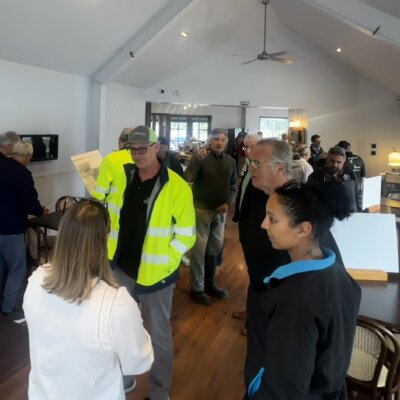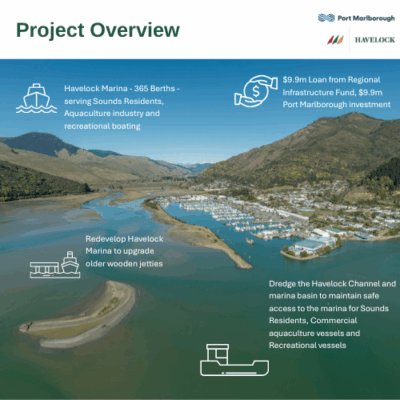Reducing the accidental catch of protected species in the Sounds
As boaties who live, work and play in the Marlborough Sounds, we are all aware how lucky we are to live in this beautiful environment with such rich biodiversity. Part of the responsibility of being here and enjoying the unique Sounds lifestyle, is making sure that we look after just what makes this place special and protecting it for future generations to also enjoy.
The Department of Conservation’s Aotearoa/New Zealand Biodiversity Strategy laid out a goal of reducing the accidental catch of marine protected species to zero by 2050.
To do this, they need to better understand how and where accidental captures occur. There is currently little empirical data on how many, where, and how protected species are being caught, or which species are most at-risk, but research shows that fishing activities including the use of hooks, pots, and set-nets result in the accidental catch of protected species.
With about 650,000 recreational fishers catching nearly 11 million fish and other species every year, even small and infrequent individual events can add up to big losses for conservation. Your report will help DOC to understand where this could occur and take steps to help.
DOC are now reaching out to recreational fishers in the Marlborough Sounds to use a new app to report accidental capture of marine protected species. This will help scientists better understand the impacts of recreational fishing on our protected species. Reports are anonymous, and will be collated here.
Starting today, DOC is asking marine recreational fishers in the Marlborough Sounds to anonymously report accidental capture or interaction with mammals such as dolphins and seals, seabirds, sharks and other marine protected species.
“A recent survey shows that recreational fishers want to reduce their impacts,” says Dr Karen Middlemiss, Marine Science Advisor at DOC.
Fishers in the Sounds are encouraged to download the new ‘Protected Species Catch’ app, speak to DOC staff at a boat ramp, or dial 0800 REK FISH to report any interactions.
A key element of this work is also increasing national education and awareness about marine protected species and provide resources for fishers to learn how to identify them.
“New Zealanders are lucky to have the ocean on our doorstep that we can use for recreation and to gather kai. It’s important that we all play our part in looking after it.”
“Recreational fishers are aware their hobby relies on a healthy and thriving marine environment and we want to do all we can to reduce accidental catch of protected species. This project aims to help support wider efforts to reduce the decline of marine protected species and protect biodiversity – helping us to leave a healthy ocean for future generations.”
It’s hoped the project will lead to a better understanding of the nature and extent of accidental catch – which species are being caught, where, and by what fishing methods.
Every year, around 575,000 recreational fishers harvest nearly 11 million fish and shellfish species in New Zealand waters. However, we currently have very little data on what impact this has on marine protected species, including marine mammals, fish, seabirds, reptiles, and corals.
Building on the work in the Marlborough Sounds, DOC plans to develop a national reporting program in 2021.
Find out more about the programme at www.doc.govt.nz/recreational-fishing-bycatch





